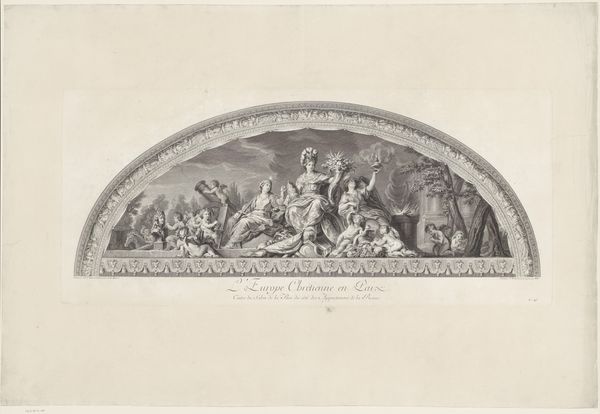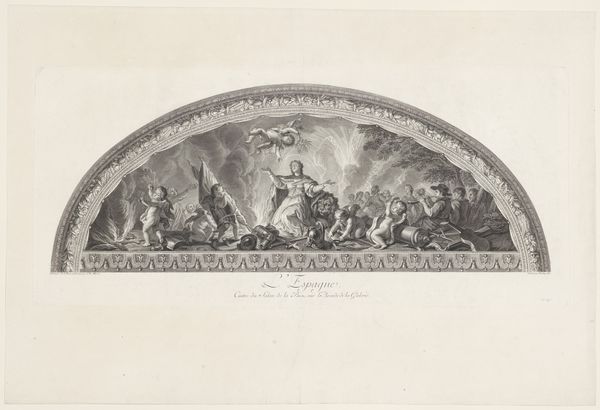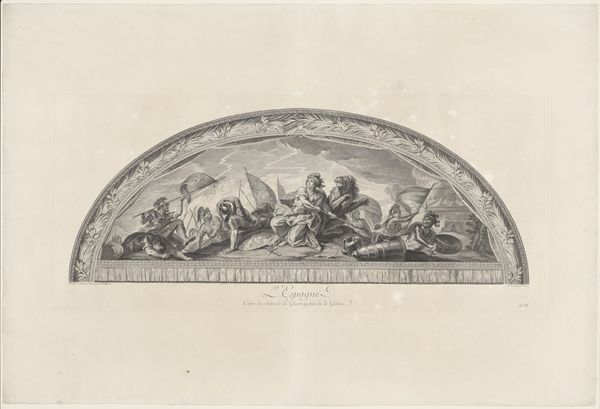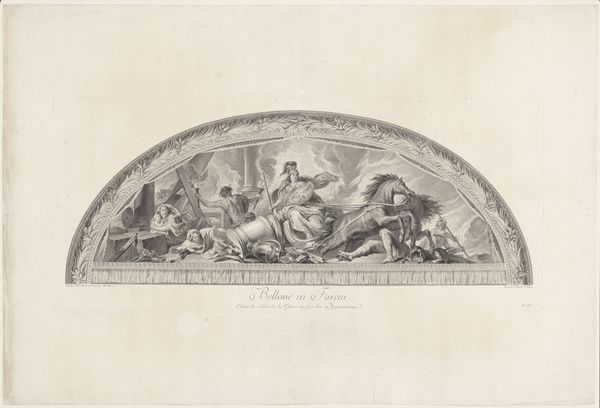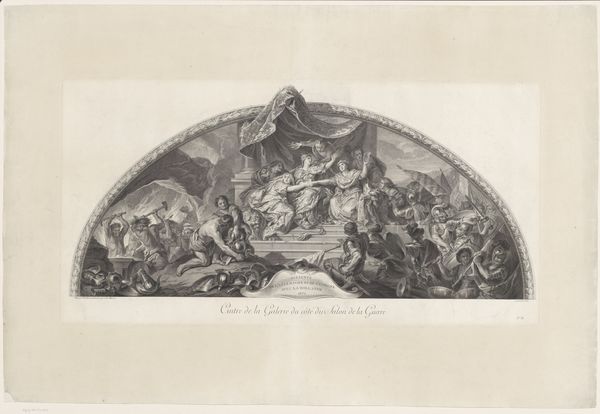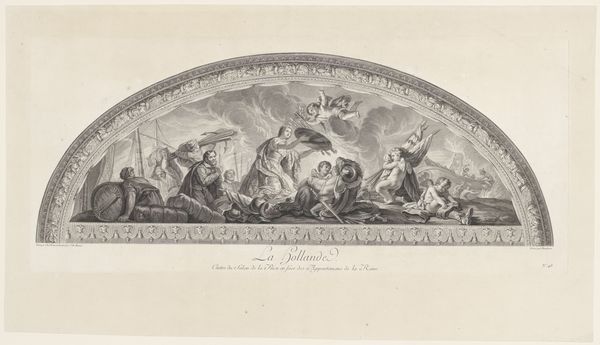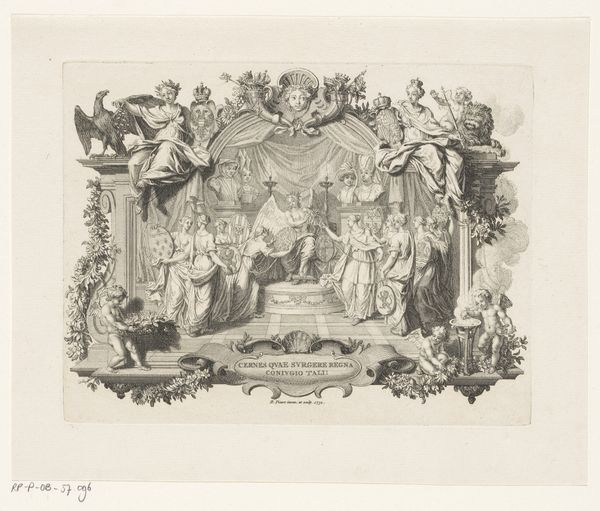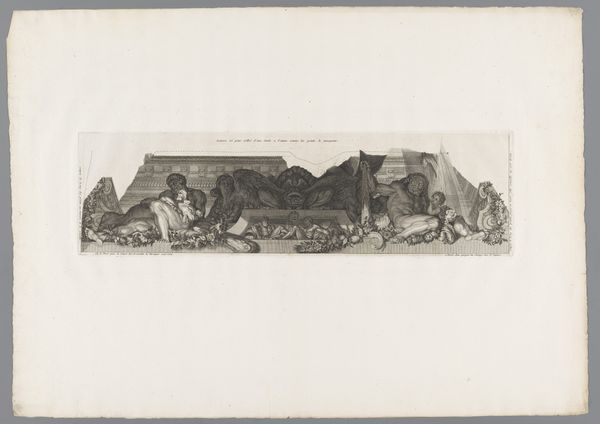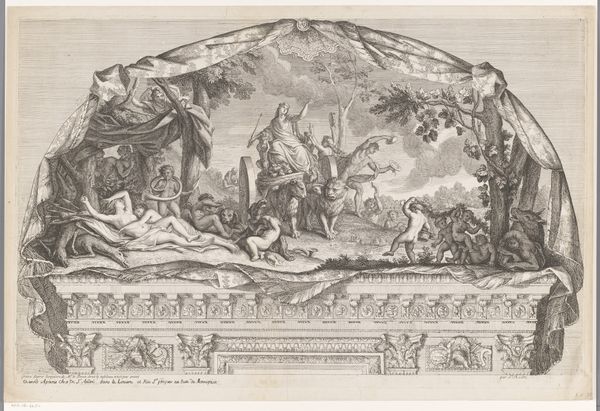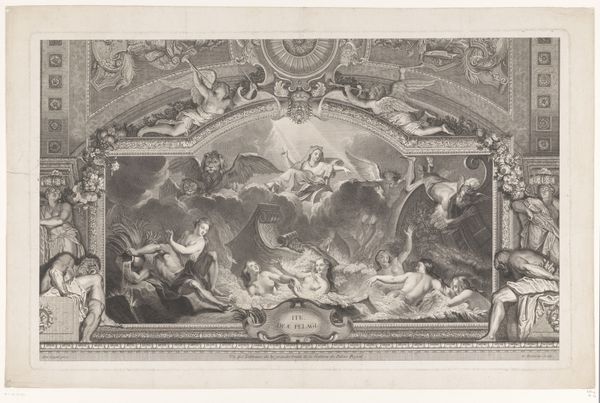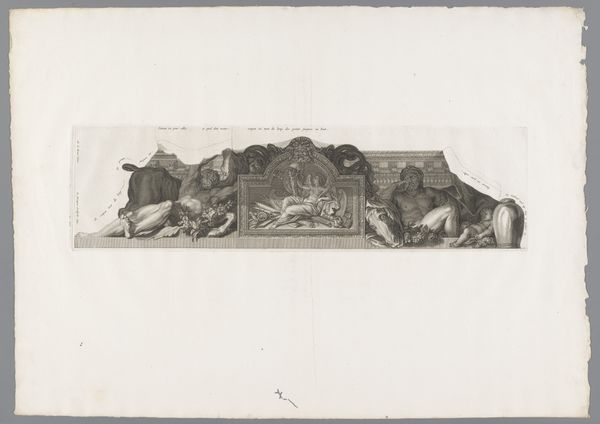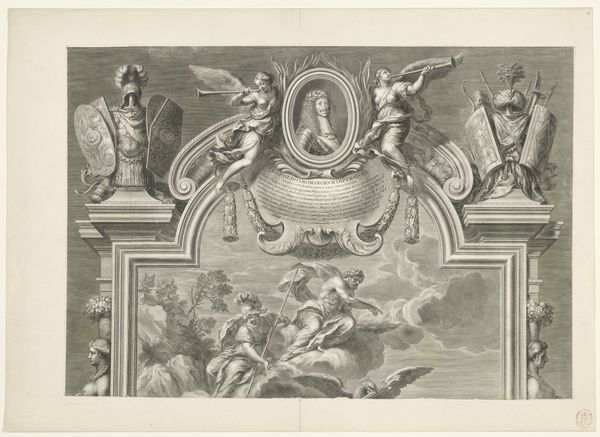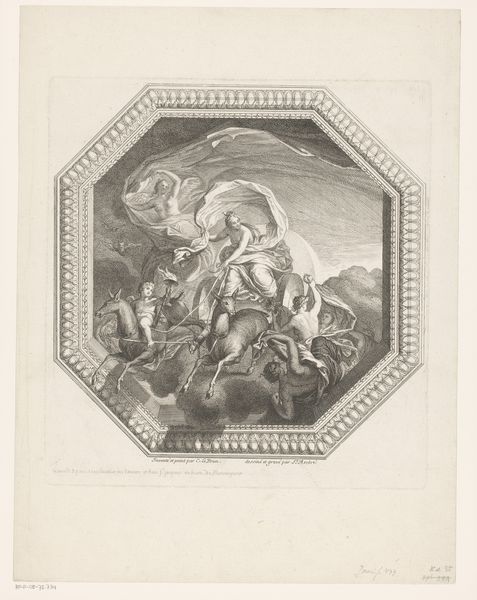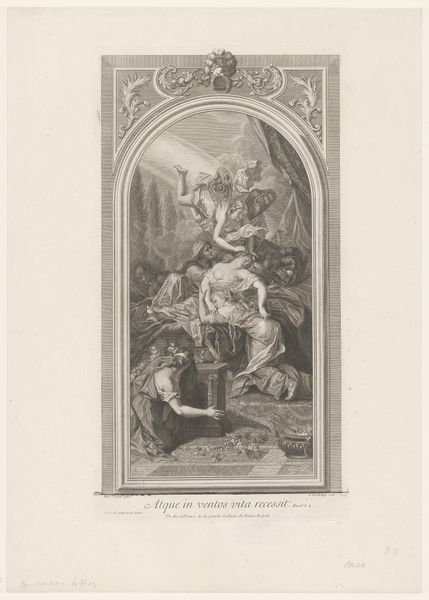
Plafondschildering in de Grande Galerie van Versailles met de personificatie van het Heilige Roomse Rijk 1752
0:00
0:00
print, engraving
#
allegory
#
baroque
# print
#
old engraving style
#
history-painting
#
engraving
Dimensions: height 362 mm, width 817 mm
Copyright: Rijks Museum: Open Domain
Nicolas de Beauvais created this ceiling painting study for the Grande Galerie of Versailles sometime between 1687 and 1763. The monochromatic rendering and semi-circular format immediately evoke the tradition of classical friezes, adapted to celebrate the Holy Roman Empire. Note how the composition uses a balanced asymmetry to suggest both harmony and dynamism. The central figure, likely Germania, is framed by allegorical figures and cherubic forms, creating a visual hierarchy that draws the eye. Beauvais uses light and shadow to model forms, but also to orchestrate the composition. The darker areas on the periphery create a sense of depth. The study engages with the concept of the ‘sublime,’ seeking to inspire awe through the grandeur of its subject matter and its detailed execution. The classical elements—the figures, drapery, and idealized landscape—are rendered with a concern for detail. Ultimately, the study speaks to the power of art to construct and reinforce political ideologies.
Comments
No comments
Be the first to comment and join the conversation on the ultimate creative platform.
